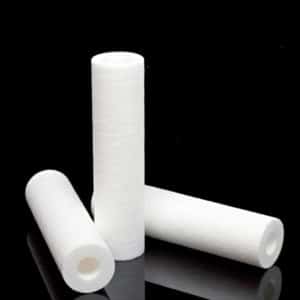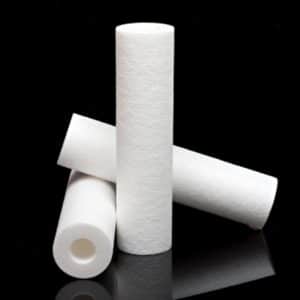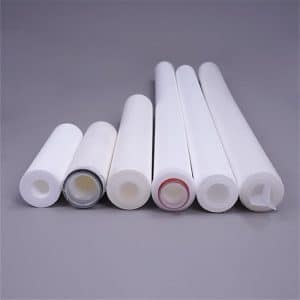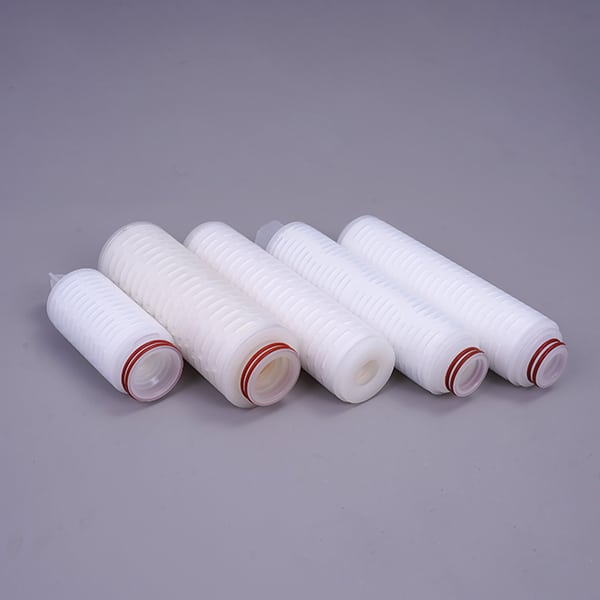
Discover the Power of PP Melt Blown Filters: A Comprehensive Guide
In industries that require effective filtration solutions, PP (polypropylene) melt blown filters stand out as a top choice for a wide range of applications. Whether it’s water purification, air filtration, or protecting industrial equipment, these filters offer reliability and efficiency at an affordable price. This article explores the unique features, benefits, and purchasing considerations of PP melt blown filters, ensuring you make the right choice for your filtration needs.
What is a PP Melt Blown Filter?
A PP melt blown filter is a type of depth filter made from polypropylene, a thermoplastic polymer. The filter is created through a melt-blown process, where polypropylene is melted and extruded into tiny fibers that are randomly laid down to form a non-woven fabric. This structure allows for high dirt-holding capacity, as the fibers create a gradient density from the outer layer to the inner core, effectively capturing particles of various sizes.
These filters are widely used for applications that require efficient removal of contaminants, such as sediments, rust, and debris, from liquids or gases. Their versatility and cost-effectiveness make them a popular choice in various industries, including water treatment, pharmaceuticals, food and beverage, and petrochemicals.
Key Features of PP Melt Blown Filters
- High Filtration Efficiency: PP melt blown filters are designed to capture particles as small as 1 micron, making them effective at filtering out fine contaminants. This high level of filtration ensures clean and safe water or air in different applications.
- Gradient Structure: One of the standout features of these filters is their gradient structure, which increases their dirt-holding capacity. The outer layers trap larger particles, while the finer inner layers capture smaller particles, ensuring longer service life.
- Chemical Resistance: Polypropylene is known for its resistance to a wide range of chemicals, including acids, bases, and organic solvents. This makes PP melt blown filters suitable for use in harsh environments and with various liquids.
- Thermal Stability: PP melt blown filters can operate efficiently in temperatures ranging from 4°C to 80°C (39°F to 176°F), making them ideal for both cold and hot filtration processes.
- Cost-Effective: Compared to other filtration options, PP melt blown filters offer excellent performance at a lower price point, making them a cost-effective solution for industries requiring regular filter replacements.
Applications of PP Melt Blown Filters
PP melt blown filters are versatile and can be used in several industries. Here are some of the most common applications:
- Water Treatment: These filters are widely used in residential, commercial, and industrial water purification systems to remove sediments, rust, and other particles. They are often installed in pre-filtration stages to protect more sensitive filtration systems such as reverse osmosis (RO) membranes.
- Food & Beverage Industry: In industries where hygiene and purity are critical, PP melt blown filters are used to remove particles from liquids, such as wine, beer, and soft drinks, ensuring product quality and safety.
- Pharmaceuticals: These filters are used in pharmaceutical manufacturing to filter raw materials, solutions, and finished products, helping to meet stringent purity standards.
- Petrochemical Industry: PP melt blown filters are ideal for filtering lubricants, oils, and fuel, protecting machinery and reducing maintenance costs in heavy industries.
Benefits of Using PP Melt Blown Filters
- Improved Product Quality: By efficiently removing particles, these filters enhance the quality of the final product, whether it’s clean water, beverages, or pharmaceuticals. Consistent filtration ensures that contaminants are effectively removed from the production process.
- Extended Equipment Life: In industrial settings, using PP melt blown filters helps protect downstream equipment by preventing clogging and damage caused by sediments and debris. This leads to reduced maintenance and repair costs.
- Eco-Friendly: Polypropylene is a recyclable material, and the use of melt blown filters helps reduce the overall environmental impact by minimizing waste. Furthermore, their durability means fewer replacements, which also helps in reducing material consumption over time.
- Wide Compatibility: PP melt blown filters are compatible with a variety of filter housings and systems. Whether used in residential setups or industrial filtration systems, they offer seamless integration, making them easy to install and maintain.
- Customizable Options: These filters come in different micron ratings (from 1 to 50 microns) and sizes, offering flexibility to meet specific filtration needs. This customization ensures that industries can choose the right filter for their unique requirements.
Choosing the Right PP Melt Blown Filter
When selecting a PP melt blown filter, there are a few key factors to consider:
- Micron Rating: The micron rating determines the size of particles the filter can capture. For instance, a 1-micron filter will capture finer particles than a 5-micron filter. The right micron rating depends on your specific filtration needs.
- Flow Rate: The flow rate is crucial for ensuring that the filter can handle the required volume of liquid or gas. Be sure to choose a filter with a flow rate that matches your system’s needs.
- Temperature and Pressure Compatibility: Consider the operating conditions of your system. Ensure the filter can withstand the temperature and pressure of your filtration process.
- Chemical Compatibility: If you’re filtering aggressive chemicals, verify that the polypropylene material can resist those chemicals without degrading.
PP Melt Blown Filter Price Considerations
The price of PP melt blown filters varies depending on factors such as size, micron rating, and brand. However, they are generally more affordable compared to other types of filters like pleated or carbon filters.
- Standard Filters: For general water filtration applications, prices typically range from $3 to $10 per filter.
- Industrial-Grade Filters: Larger, higher-grade filters used in industrial settings can cost between $20 and $50 per filter, depending on the specifications.
- Bulk Purchases: For large-scale operations, buying PP melt blown filters in bulk can lead to significant savings, with prices decreasing as the order quantity increases.
Conclusion
PP melt blown filters offer an excellent balance between performance, durability, and cost-effectiveness. With their ability to capture fine particles, resist harsh chemicals, and handle varying temperatures and pressures, these filters are a reliable solution for a wide range of applications. Whether you need filtration for water treatment, food and beverage production, or industrial processes, PP melt blown filters deliver consistent and effective results. When choosing a filter, consider factors like micron rating, flow rate, and compatibility with your system to ensure optimal performance.
Narrow Results
- Certified Chinese Exporters for Food-Grade Rosin Press Bags
- Industrial-Grade Rosin Press Bags by Chinese Manufacturers
- Sourcing Rosin Press Bags from Wholesale-Ready Distributors
- Your Go-To Chinese Company for Rosin Press Extraction Bags
- Creatively Crafted Rosin Press Bags by Professional Makers
- Large-Volume Rosin Press Bag Supply from China
- Custom-Made Rosin Press Bags from Skilled Chinese Makers
- Efficient Rosin Press Bag Production from Chinese Factories
- Technology-Driven Rosin Press Bag Manufacturing in China
- Wholesale Orders Welcome – Rosin Press Bags from China
- Choosing the Optimal Rosin Press Bag Size for Your Plates
- Nylon vs. Mesh: What is a Rosin Bag Made Of?
- 60 Micron Polypropylene Felt Liquid Filter Bag,Sewn,Plastic “F” Flange Ring, Size #4-105*380mm
- PP Pleated Filter Cartridges for Water Treatment and Beyond
- A Guide to Installing and Maintaining Max A High Flow Filter Cartridges
- 10 Micron Polyester Felt (PE) Liquid Filter Bag,Sewn,Plastic “F” Flange Ring, Size #1-180*410mm
- 75 Micron Nylon Liquid Filter Bag,Sewn,Plastic “G” Flange Ring, Size #2-180*810mm
- 300 Micron Filter Bag: The Perfect Solution for Efficient Filtration
- PTFE Hydrophilic Filter Cartridge
- 50 Micron Polypropylene Felt Liquid Filter Bag,Sewn,Stainless Steel Ring, Size #2-180*810mm
- Discover the Future of Filtration with Advanced Pleated Cartridges
- How Industrial Pleated Filters Enhance Workplace Air Quality
- Melt Blown Filter Cartridge
- The Role of Spiral Wire Mesh Cooling Belts in Optimizing Food Processing Cooling
- Top Rosin Press Bag Alternatives: Exploring Innovative Extraction Methods
- 3M type high flow filter cartridge
- 48 Micron Polyester Filter Mesh, Open Area %: 28
- How to Select the Best High Flow Pleated Filter for Your Needs
- The Science Behind High Flow Cartridges: What Makes Them Unique
- Unlock Higher Yields with These Pro Rosin Bag Press Tips
- Liquid Filter Bags
- Liquid Filter Cartridges
- Nylon Filter Mesh
- 400 micron filter
- polyester filter mesh
- 3m high flow filter
- pp water filters
- PP water filter cartridges
- High Flow Pleated Filter Cartridges
- multi bag filter
- nylon filter cartridge
- 20 micron filter bag
- melt blown liquid filter cartridge
- pp sediment filter: the ultimate guide to clean and pure water
- nylon filter mesh
- pp pleated filter cartridge
- high flow pleated filter cartridge
- nylon cartridge filter
- polypropylene string wound filters cartridge
- 3m high flow water filter cartridge
- 800 micron filter bag
- 90u micron bags
- 75 micron bag
- 55 gallon dust collector bags
- 50 micron nylon filter bag
- 50 micron filter bag
- 50 micron bag
- 5 micron water filter bag
- 5 micron filter bag
- 5 micron bag
- 400 micron nylon mesh
- 400 micron mesh filter bag
- 400 micron mesh bag
- 300 micron filter bag
- 20 micron filter bag
- 20 inch bag filter price
- 1 micron filter mesh
- melt blown polypropylene filter cartridge
- 100 micron filter bag



